Vishing attacks involve callers trying to persuade their targets into divulging sensitive information like passwords, multi-factor authentication numbers and financial details that can then be used for identity theft and fraud or to take money out of an account.
Criminals frequently pose as officials from trusted institutions like the IRS, banks or credit card agencies to lure unsuspecting victims into providing personal details that will lead them down a dangerous path of identity theft. Their use of fear and urgency to force victims to part with information makes the victims particularly vulnerable to such scams.
What Is Vishing?
Voice phishing (or vishing), often called voice-phishing, is an elaborate phone scam which uses social engineering techniques to convince victims into providing sensitive data that could later be used in fraud or theft, such as unauthorised purchases using credit cards or withdrawals from bank accounts. Vishers often pose as trusted entities like banks or HMRC to convince victims to reveal their information.
Fear and panic can be used as tools to manipulate people into taking unwise actions without thinking. A caller might claim their account has been compromised or that they owe money to the IRS, leading them to call a toll-free number that connects directly to someone from “tax department” or another government body in order to discuss their situation further.
FortiEDR can prevent vishing attacks by shrinking their attack surface, detecting threats quickly and mitigating them to reduce exposure as well as prevent malware infection and data compromise.
Difference between Vishing and Phishing
Vishing (voice + phishing) refers to cyber attacks conducted through phone calls that target victims by tricking them into providing confidential credentials or personal information directly. Also referred to as robocalls, these phone-based scams attempt to get victims to give up sensitive data they hold which allows attackers access.
These scams, whether carried out by humans or computer programs, typically create an impression of urgency by impersonating trusted sources; vishing attackers might falsely inform victims that their bank account or credit card have been compromised and must provide their details immediately to avoid fraud.
Vishing attacks often impersonate government agencies. Cyber attackers may pose as Medicare, Social Security Administration or IRS representatives and convince victims to call a specific number in order to resolve an issue, inducing victims to provide their banking details or even download malware onto their device.
To prevent vishing, never provide sensitive data such as multi-factor authentication (MFA), passwords, financial details or any other sensitive information over the phone. Instead, contact the institution directly through its official website or your contacts directly using their number.
How to Prevent Vishing?
Awareness is key when it comes to avoiding vishing attacks, since attackers use software that calls out at random times, hoping for someone to answer and verify their information. Attackers typically have partial knowledge about their target such as address, transactions or family details which makes the call seem legitimate – plus psychological tactics like threats of being arrested or having their accounts hacked can prompt victims into acting immediately.
Vishing attackers often pose as representatives from legitimate companies like banks, credit card agencies or law enforcement to persuade victims that they must work with them. Vishingers will leave threatening voicemails warning the victim they will be arrested, their accounts locked down or that action must be taken now unless action are taken immediately.
One effective way of avoiding unwanted calls from telemarketers and vishing scammers is to register for the National Do Not Call Registry or its equivalent in your country. Doing this will limit unwanted phone calls from telemarketers while decreasing vishing scam risk.
1. Be aware of vishing
Vishing is a type of attack that can seriously disrupt your business, so it is vital that you understand its workings so as to safeguard against its dangers.
Vishing, also known as voice phishing, is an illegal form of social engineering which employs phone calls or voice messages to scam victims into divulging sensitive data that can then be used for fraud or money theft. Attackers typically pose as bank or government representatives to make their attacks appear legitimate and may use software that alters voice qualities and geographical accents so as to make it hard for victims to identify them.
One of the more frequently employed vishing scams involves attackers impersonating Internal Revenue Service (IRS) officers and demanding payment for unpaid taxes owed. This type of attack takes advantage of people’s desire to alleviate financial stress. Another popular attack involves “enrollment scams”, in which attackers pose as representatives from government programs like Social Security or Medicare to collect personal or financial details from victims.
2. Identify pressure and scare tactics
Vishing involves attackers using various tactics to deceive victims into divulging sensitive information or making financial transfers. Vishing attackers often pose as bank representatives or even family members to gain trust from victims before creating a sense of urgency or fear to pressure their targets into disclosing sensitive data or making transfers.
Attackers may use spoofing techniques to appear as though they are calling from an authoritative source, for instance claiming to be from IRS or police forces in order to intimidate victims into complying with their requests.
Be skeptical and be wary when receiving phone calls that seem unexpected from unknown numbers. Call the public phone number of any institution suspected, to check and validate who you’re dealing with; additionally, organizations should organize regular training sessions on cyber hygiene and vishing attacks in order to educate employees against these forms of threat.
3. Ignore calls from unknown numbers
Vishing can be dangerous. Criminals can appear to call from trusted organizations or individuals such as the IRS, Social Security, an insurance agent, holiday dealer, bank manager or even your employer – making you think that their caller ID shows they’re calling instead of them! They could even try spoofing your caller ID so it looks like the organization called directly.
Obtaining your personal data could enable an attacker to misuse it to steal funds or your identity – leading to fraud, theft and financial issues that may be difficult or impossible to recover from.
No matter the caller or call type, it is wise to ignore unknown numbers and do not respond immediately. Even if they require sensitive data or funds from you, it would be prudent to hang up before communicating directly with the organization to assess and make an appropriate decision for yourself or your business.
How to Recognize Vishing?
Businesses must recognize vishing attacks and educate employees on the warning signs. One form of vishing attack involves criminals calling victims over the phone impersonating their institution and demanding credentials or personal data from them. Criminals use psychological tactics like fear, greed and urgency to gain trust from victims and convince them to share data.
Remember that banks, law enforcement agencies and government organizations will never contact individuals over the phone to verify account information or obtain private details over the phone. Furthermore, should an inadvertent message appear that suggests your computer may have been infected with malware, it would not be wise to call the number provided for removal purposes.
Vishing scams can be avoided using an integrated security solution such as Imperva’s Web Application Firewall (WAF), which utilizes world-class analysis to detect and block vishing threats before they enter your network. Furthermore, providing employees with education on warning signs as well as security awareness training may help stop potential attacks before they even take place.
How to stay safe from vishing scams?
Vishing attacks, more closely associated with scamming than cyber security attacks, have become more frequent. Victims often lose money or other sensitive data as a result. Vigilance and awareness is key when it comes to protecting oneself against these types of attacks; recognising suspicious calls should also help if one suspects having fallen for this type of scheme. If a vishing scammer contacts you directly claiming they’ve lost money or sensitive data through vishing is paramount.
Employees should receive training that includes security awareness simulations to recognize vishing attacks, block robocalls, and independently verify the identity of callers – rather than calling the number given by an attacker, look it up online or consult trusted sources to do your own verification process.
Criminals using vishing can be more sophisticated, using various techniques to gain your trust. They might pose as law enforcement or government personnel; use software to alter their voice; alter their geographic accent; or even engage in dumpster diving to obtain personal data from trash cans.
Beware of Vishing Scams
Vishing criminals often prey upon seniors, impersonating tax collectors or encouraging them to make quick investments with high returns. When speaking on the phone with someone purporting to represent an institution that seems legitimate, always remain wary. Do not share personal details over the phone even when convinced you’re talking with an authoritative entity.
Scammers use caller ID spoofing techniques to make their call appear legitimately from businesses or government organizations, so always remain cautious if someone asks you for account information, PINs, or passwords over the phone.
1. A demand for payment
Criminals engaging in vishing – also known as phone or voice phishing – take advantage of the fact that personal phone numbers and internal business lines may not remain entirely private, relying on publicly available information about past transactions or family details to make their scam more convincing.
Imposters may also pose as companies you do business with in order to gain information from employees. A technical support scam might involve impersonating one of your vendors and suggesting that there are severe security threats or software issues requiring immediate attention, while offering remote access so they can steal or install malware onto your computer. Therefore, it’s critical that sensitive data or payments be never divulged over the phone.
2. Enrollment scams
Vishing attacks involve phone calls in which scammers pose as people or organizations you trust – for instance banks, package delivery services and even the IRS – in order to obtain personal information quickly. Furthermore, vishing can take the form of tech support scams where scammers pose as representatives from IT or software companies such as Microsoft offering solutions by installing malware onto devices belonging to victims.
Advance-fee fraud is another popular form of vishing attack, in which perpetrators solicit personal data in order to secure deals or investments – this includes rental property scams wherein upfront fees for nonexistent properties must be paid upfront; loan and investment scams that promise high returns; Medicare enrollment scams where criminals require your Medicare number and banking details in order to steal money or gain access to health records; among others.
3. Solving a problem with your account
Vishing attacks aim to obtain sensitive data such as login credentials, credit card details and account numbers which can then be used for fraudulent activities such as identity theft. Attackers could then exploit these stolen details for various crimes including ransomware attacks or BEC attacks – with devastating results.
VIshing scammers employ scare tactics to generate urgency and fear by impersonating representatives from tech support companies or warning of severe security threats. Victims may then be convinced to call a number that installs software allowing attackers to gain remote access and potentially steal data or infect systems with malware.
Vishing attacks must be detected and blocked with extreme care and awareness programs that educate employees to identify these threats using simulations and alert systems are an essential element in tackling vishing attacks.
4. Collecting an award or special offer
Vishing (voice phishing) attacks typically include phone calls and/or texts messages sent via telephone lines to victims. Such attempts could come as standalone attacks or from emails asking the recipient to call a number.
Vishing scams typically involve falsely informing victims they’ve won an offer or prize and then asking for personal data in order to claim it. There is also the “tech support” variation, where fraudsters request they gain remote access into your computer by visiting certain websites or downloading software programs that will give them remote control of it.
These attacks are often highly convincing, creating an urge to act immediately. They may use deception to gain your login credentials or sensitive data and can lay the groundwork for more harmful attacks like ransomware, cyber extortion and fraud – or even impersonate your company and gain legitimacy to gain your money or company secrets.
Final Thoughts
Vishing attacks are increasingly prevalent, employing both emotional manipulation and technical sophistication in their attacks. Criminals use personal information acquired from social media or VoIP services to lower a target’s defenses while using clever number spoofing tactics to make their calls appear legitimate on their victim’s caller IDs.
Victims of vishing attacks face costly consequences. Victims are tricked into disclosing valuable personal or business data over the phone that cannot easily be verified using email security tools that scan links and attachments.
Always remain wary of calls you don’t recognize, even if they appear in your contact list. Be especially wary of calls made at unusual hours or from companies unfamiliar with your company’s industry; best to let these go to voicemail without answering back immediately.

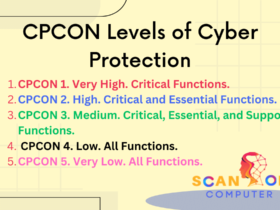



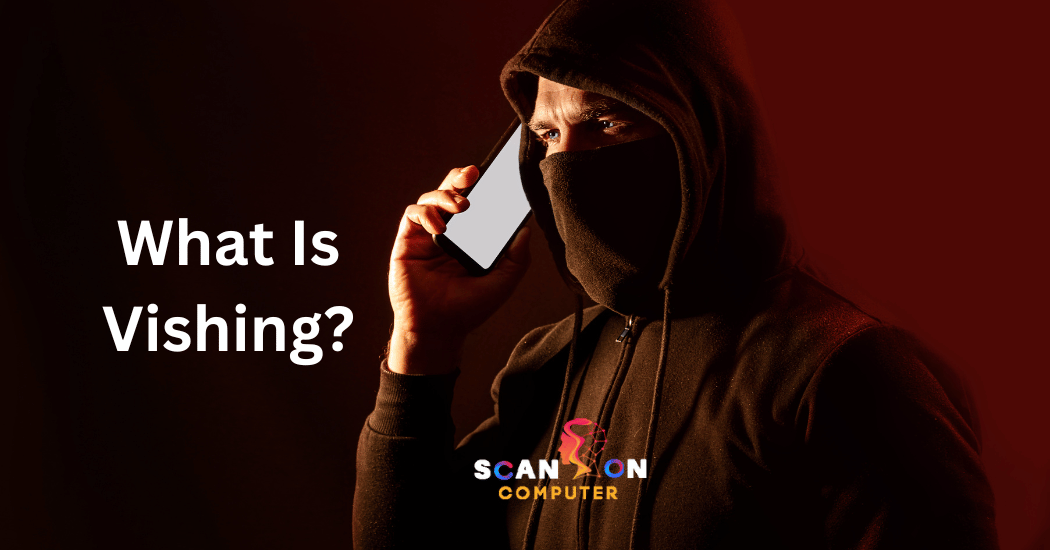
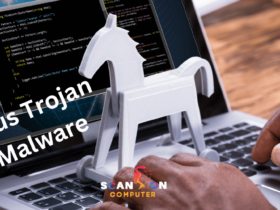

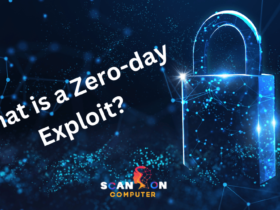
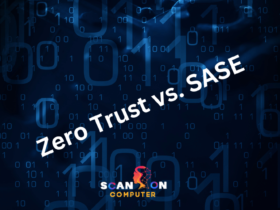
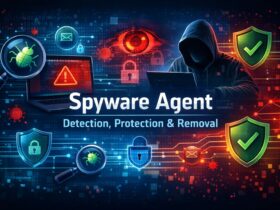

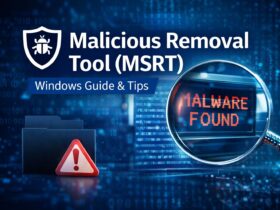

Leave a Reply
View Comments